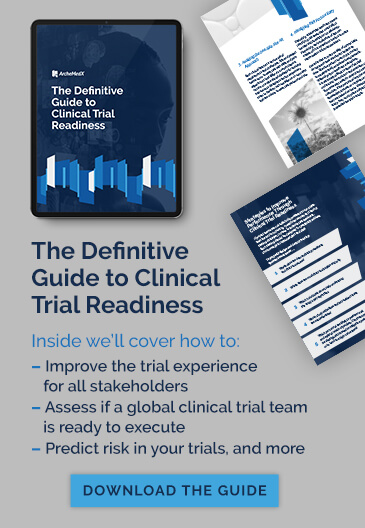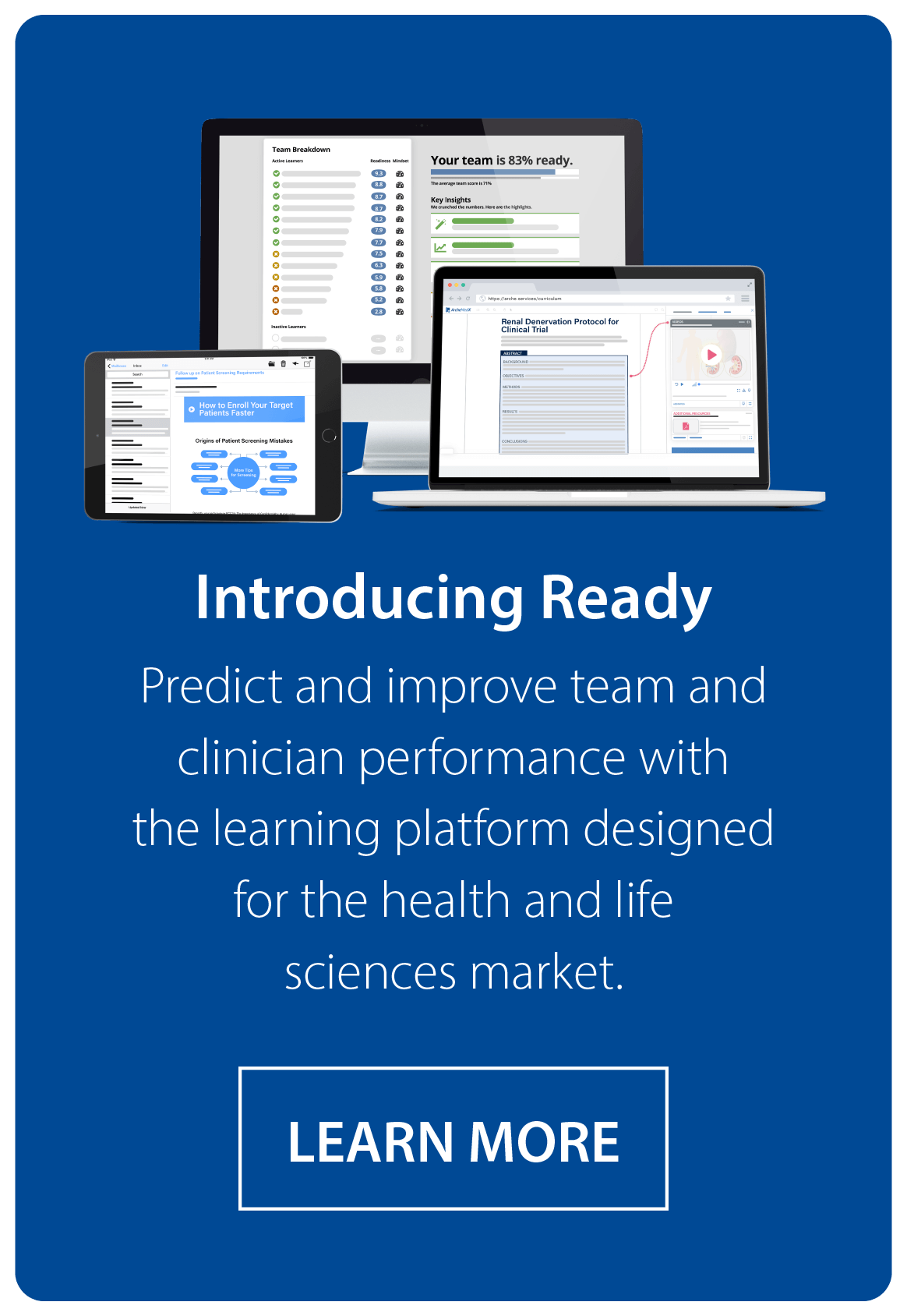The following is an excerpt from our ebook “The Definitive Guide to Clinical Trial Readiness.” Click here to download the ebook in its entirety.
-
Architecting Key Decisions
Focusing on trial readiness is vital in architecting critical decisions around . . .
- Resource assignments
- Frequency and volume of procedures
- Controlling costs
- Preventing issues
- Ensuring timeliness
- Knowing where to focus management
-
Enhancing Performance
Making trial readiness a priority means . . .
- Improved staff performance
- Improved team and staff confidence
- Increased staff retention
Readiness involves . . .
- Understanding the preparedness of staff and sites by analyzing their confidence, performance on tests, and learning behavior
- Centralizing actionable insights to predict risk
- Taking decisions to mitigate risk and drive performance
The state of readiness is indicative of future performance. Without purposely striving for readiness using techniques such as active learning and the analysis of behavioral data, performance will vary widely across teams and sites.
-
Avoiding the One-Size-Fits-All Approach
Each clinical trial has a unique set of requirements and challenges. Site and project teams come to each trial with skills and prior experiences that differ. As a result, there is never a one-size-fits-all strategy for assuring trial success. Readiness tactics empower a team to perform with confidence on concepts that are unique to each trial protocol and site.
-
Identifying Risk Factors Early
Evaluating clinical trial readiness means identifying risk areas that could affect
the trial and its ability to run efficiently. Pinpointing early indicators of risk can enable clinical operations leaders to make faster, better-informed decisions.
For example, effective patient screening
is the key to meeting study enrollment requirements. Without proper readiness evaluations, it is extremely difficult to know
if all staff understand the inclusion and exclusion criteria. The same risks exist for dosing and sample collection. If the personnel lack the necessary knowledge, interest, or confidence when they are trained on these vital aspects of the study, they could place subjects at risk and jeopardize the trial’s results.
-
Managing Finances Better
Clinical trial readiness is also a financial concern. Subpar competence in any area
of a trial costs money and time. Consider the cost of replacing project team members, or protocol deviations, or delays in enrollment or reporting. The impact might be measured in millions of dollars.
-
Designing More Efficient Trials
Technology is driving the efficiency of clinical trials. Today, sponsors and CROs can use enhanced data analytics and deep learning techniques to focus resources where needed and run more effective trial operations. With these added insights, leaders can design clinical trials that advance treatments and cures across even the most complex therapeutic areas and under the most challenging circumstances. Applying the right technology and data to solve the right issue will enable leaders to rise to meet the challenges of our time.
-
Managing Global Trials Better
Trial teams are forever adapting to accommodate protocol modifications and increased complexities. Today, they are also becoming more decentralized and more global. Larger teams make training harder to organize, deliver, and assess. Effective clinical trial readiness uses data to clearly, easily identify which sites and specific personnel need additional monitoring and training.
Large global teams are more challenging to manage from the top. Training needs to be both standardized and localized throughout the trial.
Global project managers need to see granular data at scale rolled up into useable metrics that measure capabilities and risk efficiently and accurately. They need to be able to visualize and streamline performance consistently using data.
This blog is an excerpt from our ebook “The Definitive Guide to Clinical Trial Readiness.” Click here to download the ebook in its entirety.





